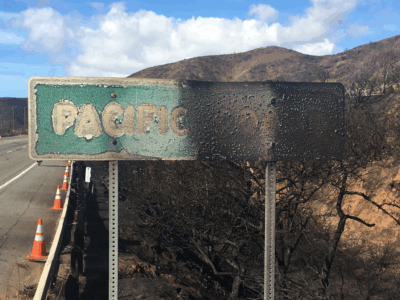The Rise of “Cli-Fi”
What the Humanities Can Teach us About Climate Change Narratives
Over the past decade, an entire genre of climate skeptic literature has emerged. As many readers of this blog may well have experienced firsthand in personal conversations, climate skeptics are often very intelligent and may well hold advanced degrees. Dan Kahan’s work has made clear that climate skepticism derives as much from deeply-held values as from concerns over the specifics of climate models and ice cores. It shouldn’t be surprising, then, that the literature of climate skepticism tries to persuade through a range of narrative strategies, many of them quite sophisticated.
What does this mean for those interested in more effectively addressing climate change?
In apparently the first course of its kind, UCSB is offering a class in the English department entitled, The Rhetoric of Climate Change. The course employs traditional tools for literary criticism, such as close textual reading and analysis, to understand better the strategies behind Cli-Fi (short for climate fiction). As Christopher Walker, a co-teacher of the class described, “One thing that was fascinating to see unfold among the students is that some of the denial literature is quite effective even with a very educated audience, an audience that is perhaps predisposed to seeing climate change as real. And what was very valuable for students and, quite frankly, for me, is that by learning how denial literature might be effective we come to better understand how the humanities can really get to the core of the cultural distinction between those that understand climate change is happening and those who aren’t yet on board.”
One of the core skills we teach in law school is how to dissect an argument. In the public debate over climate change, though, we witness not only competing arguments about the albedo effect and feedback loops, but competing narratives, as well. Bringing a humanities perspective can deepen our understanding of these narratives – which strategies they employ and what makes some narratives more compelling than others. As Edward Friedlander, a student in the course, usefully observed, “You can have climate research and science pertaining to climate change, but it’s useless if you can’t enter into dialogue with people who don’t accept that science. What this class does, uniquely, is allow us to investigate modes by which we can both infiltrate that discussion and help carry it out. We all have that uncle at family gatherings who is very adamant and determined pertaining to views about climate change. This class gives you the tools to confront that uncle.”
Just as applying basic lessons from physics and chemistry can help explain the science of climate change, applying skills from the humanities can help explain the languages of climate change.
You can read more about the UCSB course at this link.
Reader Comments
2 Replies to “The Rise of “Cli-Fi””
Comments are closed.







Jim Salzman said;
“….. the denial literature is quite effective even with a very educated audience, an audience that is perhaps predisposed to seeing climate change as real….”
Repudiating crooked climate kooks is relatively easy because our principles are based on integrity, physics, atmospheric chemistry, thermodynamics, history, and mathematics – which is far more credible and persuasive than so-called “humanities” and shallow repetitive fear mongering. Humanities does not educate us about the laws of thermodynamics. Misconstruing “humanities” is tantamount to a public admission that climate hysteria is a mental disorder.
Professor Salzman said;
“……applying skills from the humanities can help explain the languages of climate change……”
If we could better explain the languages of climate change then maybe we could persuade skeptics to stop denying it and support actions to save the planet. A reasonable method for mitigating climate change would be for the government to allocate more funding for the humanities. Perhaps this could mitigate the climate impact of the Aliso Canyon methane leak?
More humanities? why are we just now discovering this? Give us a poem and a flute.